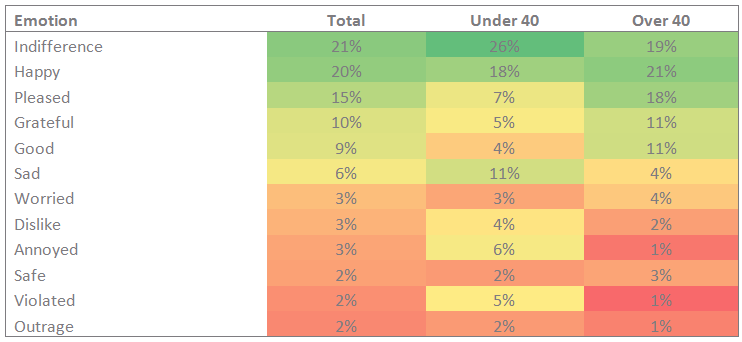Emotalizer: Banning the Burqa
Posted: 01/04/2015

“Lifting the veil on a politically uncomfortable truth – prohibitionists outnumber libertarians by two to one”

In 2010 France introduced a law making it illegal for anyone to cover their face in a public place, which meant a ban on balaclavas and hoods as well as the niqab and the face covering veils of the burqa worn by some Muslim women. This month we asked UK respondents the main emotion they would feel if a similar ban was put in place in the UK.
Twenty-one percent of our respondents would feel indifferent about this ban. The most common emotion is Happy followed by Pleased, with 20% and 15% of the sample stating them as their main emotion respectively. Overall 56% of the responses are positive emotions and 22% are negative, implying relatively strong public support. The most common negative emotions are Sad (6%) and Worried (3%). Two percent of respondents would state they would feel safer if the ban were in place in the UK.
It was found that older respondents are more likely to feel positive about the ban, with higher frequency of emotions such as Pleased and Grateful. They also feel more strongly about the issue, more commonly citing stronger emotions (i.e. ecstatic rather than happy). Younger respondents are more likely to be apathetic on the topic, with 26% of those under 40 stating Indifference as their main emotion. This younger age group also has a higher frequency of negative emotions such as Sad and Annoyed than their older counterparts.